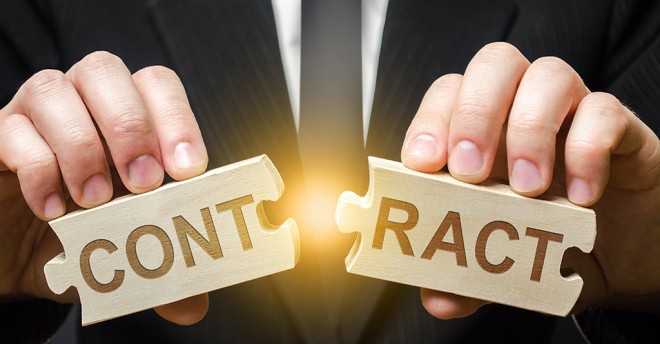
The homebuying process can be overwhelming and confusing, especially when industry jargon starts getting thrown around. But we’re here to help demystify the process a little bit, and break down some of the most common terms you’ll hear along the way. That’s why we created this Mortgage 101 Guide to break down the basic terms for you. We’ve organized terms by homebuying phases so, let’s get to it!
Homebuying
Debt-to-Income (DTI)
Your debt-to-income ratio is your total debt (credit cards, loans, etc.) divided by your income. It is used by lenders to assess the risk in applying for a home loan and tells the lender how likely you are to successfully pay back your loan. The lower your DTI, the more likely you are to be approved for a loan.
Earnest Money
When you make an offer on a home, you’ll typically be required to put down a deposit, much like renting, to show your good faith to the seller. Earnest deposits can be anywhere from 1-10% of the sales price, depending on the market. Much like a rental deposit, the earnest money is held in the escrow account until the closing of the home, and applied to the final purchase price. If the buyer backs out, the earnest money is not returned to the buyer and provides some security to the seller. If the buyer does not end up qualifying for the loan, however, the earnest money is returned.
Down Payment
A down payment is the portion of the home price that you pay out-of-pocket versus borrowing through a mortgage. The size of your down payment ultimately affects the size of your home loan. The more you put down up front, the smaller your loan will be. And vice versa. There are perks to a smaller down payment, too. You’ll have to come up with less cash initially and you may have more funds reserved for initial home repairs and emergency reserves.
Escrow
Escrow is one of the most commonly heard mortgage terms, but most people don’t actually feel confident in the term’s meaning until they’re inescrow. Escrow is essentially limbo for valuable things like money and important documents. It’s an impartial third-party account that holds things like earnest money or payments until they are due and the home sale is closed. During the final stages of a home sale, money is held in escrow while other important things happen and various parties are paid.
Escrow doesn’t onlycome up in a home sale, however. Monthly mortgage payments can be in escrow through your lender, who pays PITI (principal, interest, taxes, insurance - the sum components of a mortgage) expenses from your monthly mortgage payments, which are initially held in escrow.
Private Mortgage Insurance (PMI)
If your down payment is less than 20% of the home sale price, you may be required to purchase private mortgage insurance (PMI). PMI is insurance for your lender if you fail to make your monthly mortgage payments.
Closing & Closing Costs
Closing is the finalstep in the homebuying process, where the keys are finally transferred to the buyer. Closing occurs afterescrow, all home inspections have been completed, and all paperwork has been signed.
Closing costs cover things like title searches, title insurance, attorney fees, taxes, insurance premiums, and other variable fees, that usually amount to around 2-5% of the home sale price. Closing costs are generally covered by the buyer and can come as a surprise to some homebuyers! Make sure to discuss these details with your Realtor and Loan Officer.
Origination Fees
Origination fees are simply what the lender charges to cover the costs of processing your loan. Think of origination fees as processing fees or labor costs. These vary from lender to lender but are regulated by the government to protect the buyer from excess fees.
Equity
Equity is the value amount of a purchased home that the homebuyer actuallyowns. It grows over time as you pay back more of your mortgage. You can also ‘build equity’ through home improvements, market growth, and making more or increased payments toward the principal of your loan.
Interest Rates
Fixed-Rate Mortgage
When you apply for a home loan, you’ll be presented with a few options. A conventional fixed-rate mortgage is a common choice for most homebuyers, taking any uncertainty out of your loan. The interest rate for a fixed-rate mortgage stays the same until you pay off the loan or refinance it. Fixed-rate mortgages offer stability with a predictable, monthly mortgage payment. The interest and principle on your loan will never change. However, homeowner insurance and taxes are escrowed every year and adjusted, which affects your monthly mortgage payment.
Adjustable-Rate Mortgage
An adjustable-rate mortgage (ARM), on the other hand, has an interest rate that fluctuates based on the market. ARMs can save you money when federal interest rates drop, but can also swing the other way if the market rebounds. ARMs generally have a cap to make sure the interest rate doesn’t go up too much.
Amortization
Amortization is the scheduling of your loan repayments broken up into a set period of time. I.e. 30-year fixed-mortgage.
Points
One way to lower the interest rate on your mortgage is to purchase Discount Points. You can purchase points during closing and they will essentially buy down the rate. Point prices vary but can offer the homebuyer an opportunity to pay up front and lower their overall mortgage annual percentage rate (APR).
